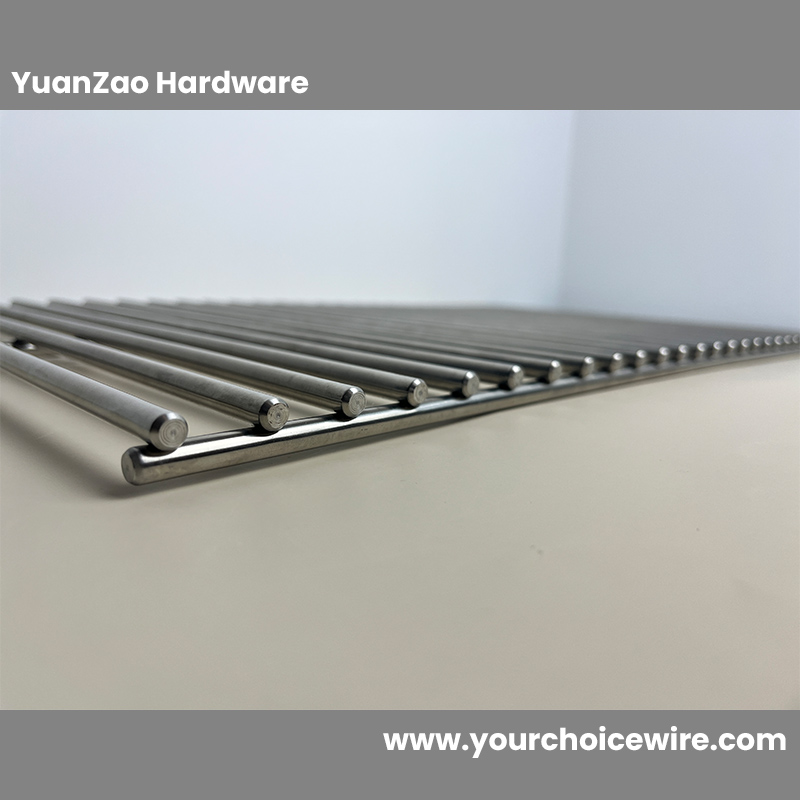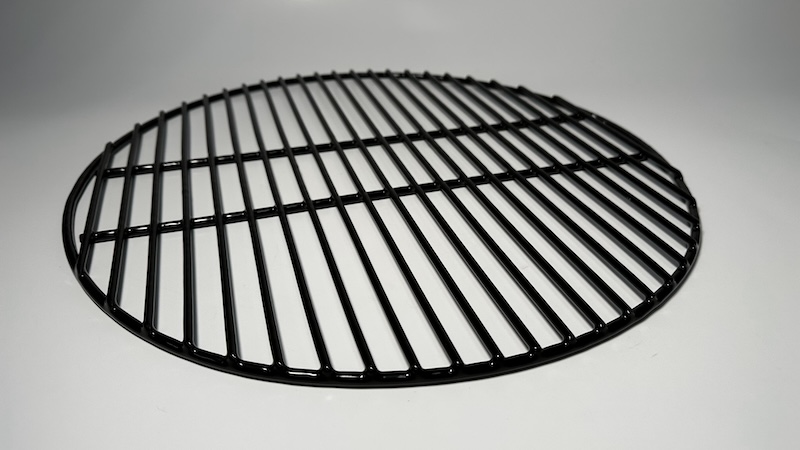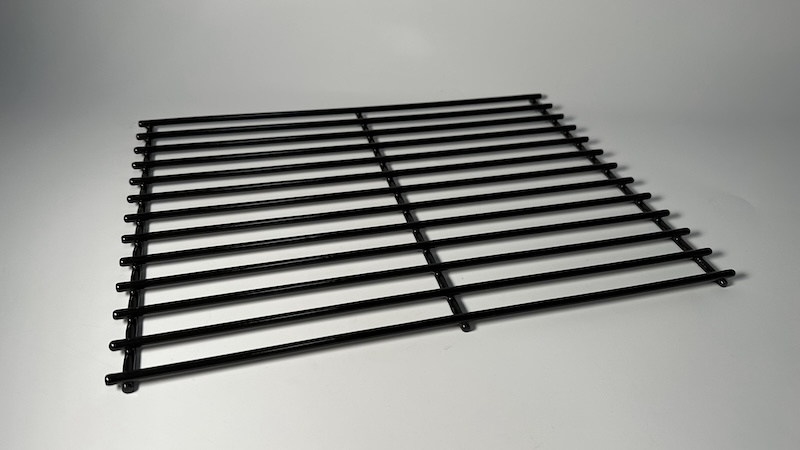Have any questions?
get in touchTel : 0086 13695242516
Whatsapp : 0086 13695242516
E-mail : info@yourchoicewire.com
Choosing the right grill grate for your outdoor BBQ grill is crucial for cooking performance, durability, and ease of maintenance. Here are some key factors to consider:
1. Material
Each type of grill grate material has its own pros and cons:
- Stainless Steel – Lightweight, rust-resistant, and easy to clean, but may not retain heat as well as cast iron.
- Cast Iron – Excellent heat retention and creates great sear marks, but requires regular seasoning to prevent rust.
- Porcelain-Coated (Steel or Cast Iron) – Offers non-stick properties and corrosion resistance, but can chip over time if handled roughly.
Of course, gas grill cooking grate material is a hot topic. Everyone has their favorites, and our favorite material may not be yours. That’s fine! In this guide, we’ll break down the top three materials for gas grill grates — stainless steel, cast iron, and porcelain enameled — and walk you through which one is our top choice.

· The choice of grill grate material should align with your cooking style, maintenance preferences, and budget considerations.
· Each material has its unique advantages, so there’s no one-size-fits-all answer; personal preference plays a significant role in determining the best option for you.
· Stainless steel grates are our choice for the best suitable grill grate material for gas grills because they are durable, easy to clean, and resist rust, making them ideal for low-maintenance grilling.
Stainless steel is one of the most popular choices for gas grill grates and for good reason.
They’re durable and long-lasting and don’t require as much maintenance as other grill grate types.
Stainless steel grates are easy to clean and maintain, making them a convenient choice for frequent grillers.

Stainless steel grill grates are so common because they offer several benefits to grillers, including:
· Long-lasting durability
· Highly resistant to rust and corrosion
· Easy to clean
· Require little maintenance
· Lightweight and easy to move
· Affordable
· Heats up quickly and provides consistent heat
· Non-porous surface limits bacterial growth

High-quality stainless steel grates can be more expensive than other materials. Cheaper stainless steel can discolor and degrade with intense heat and frequent use.
Other cons of stainless steel grill grates include:
· The cooking surface can degrade over time
· Food likely to stick as surface degrades
· Must be cleaned regularly to remove grease build-up
Cast iron grill grates are created when iron is poured into a cast of the grate shape, then typically coated with porcelain enamel to give them an easy-to-maintain surface. Some purists prefer their grates uncoated so they can oil them and build up a seasoning like a great cast iron pan.
There’s something about the ability to season cast iron grates that contributes to a non-stick surface and adds a distinctive flavor to grilled foods.
Cast iron grill grates offer many benefits that stainless steel cannot, including:
· Fantastic heat retention
· Cost-effective, generally more affordable than high-end stainless steel
· Long-lasting when properly maintained
· Creates restaurant-quality sear marks
· Enameled coating or oil seasoning can prevent sticking food
Along with its heavy-duty pedigree come a few additional drawbacks to cast iron grill grates, including:
· Heavy and hard to move
· Fragile — will break if dropped
· Requires constant maintenance
· Can rust and corrode quickly if not maintained
· If sold without an enamel coating, the grates need seasoning to be non-stick
Porcelain-coated grill grates are most commonly stainless steel or cast iron coated in a smooth enamel that both protects the metal surface from corrosion and creates a non-stick layer for food to cook on.
The smooth, non-stick porcelain coating simplifies cleanup, requiring less effort to remove food residues. However, you need to do so more carefully to avoid chipping. Wire grill brushes are a no-go!


Porcelain-enameled grates solve many of the issues people encounter with standard stainless steel or cast iron grates and deliver benefits including:
· Moderately priced
· Non-stick surface for food
· Corrosion-resistant as long as the coating is intact
Sudden temperature changes can cause the porcelain to crack, requiring careful preheating and cooling.
Other cons include:
· Enamel coating is prone to chipping if dropped or not cleaned properly
· Using metal tools or abrasive cleaners can scratch the surface
· Damaged coating exposes the grates to rust and corrosion
· Poor heat retention
· Careful maintenance required
In conclusion,Our Choice for Best Type of Gas Grill Cooking Grates: Stainless Steel
Our choice for thesuitabletype of gas grill cooking grates is stainless steel, due to its impressive blend of durability, ease of maintenance, and hygienic properties.
Stainless steel delivers many more advantages compared to cast iron or porcelain-coated grill grates, like longevity, and a choice of performance shapes like hexagonal or diamond rods.
While they may not retain heat as well as cast iron grates, their consistent heat distribution supports even cooking. For grillers seeking a low-maintenance and long-lasting option, stainless steel grates are an excellent choice.